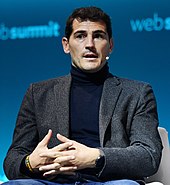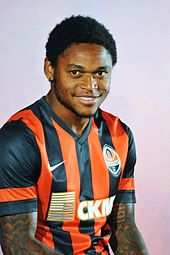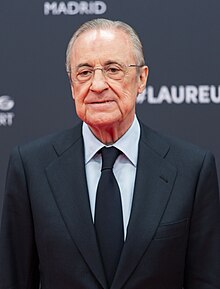European Cup and UEFA Champions League records and statistics
A total of thirteen clubs have won the tournament multiple times: Real Madrid, Milan, Bayern Munich, Liverpool, Benfica, Inter Milan, Ajax, Nottingham Forest, Juventus, Manchester United, Porto, Barcelona and Chelsea.
[4] A total of 154 clubs from 34 national associations have played in or qualified for the Champions League group stage.
Starting from the 2024–25 season with the introduction of a league phase, the top eight are considered to be qualified as well as the eight play-off winners.
The winners (Sampdoria and Barcelona in 1992, Marseille and Milan in 1993) and runners-up (Red Star Belgrade and Sparta Prague in 1992, Rangers and IFK Göteborg in 1993) of the two groups are marked as semi-finalists in the table.
Real Madrid and Bayern Munich have done so the most, on three occasions, and the latter are also the only club to have two consecutive six-win group stages: Only one club has drawn all of their games in a group stage: In the history of the Champions League, the following 23 clubs have lost all group stage matches, Dinamo Zagreb is the only team to do it twice: The biggest points difference between the first- and second-placed teams in a Champions League group phase is eleven points, achieved by four teams: Several teams have been knocked out on a tiebreaker, most on the head-to-head criteria: 1995–96 was the first tournament in which three points were awarded for a win instead of two.
Only Alfredo Di Stéfano, Ferenc Puskás, Sándor Kocsis, Lionel Messi and Robert Lewandowski managed to do this from the quarter-final stage onwards and Ferenc Puskás is the only footballer to score four goals in a final (1960).
The following players have managed to score five goals in one European Cup/UEFA Champions League match: Notes: The criteria for an assist to be awarded may vary according to the source, this table is based on the assists criteria according to Opta, where assists are not counted for balls that are deflected or rebounded off opposing players and have clearly affected the trajectory of the ball and its arrival to the recipient (the goal scorer).




























